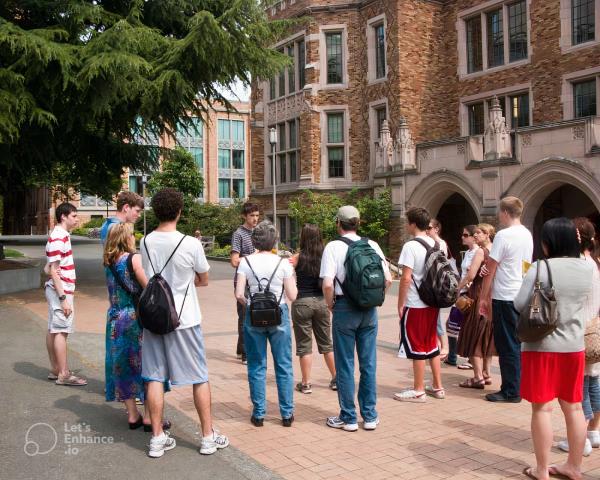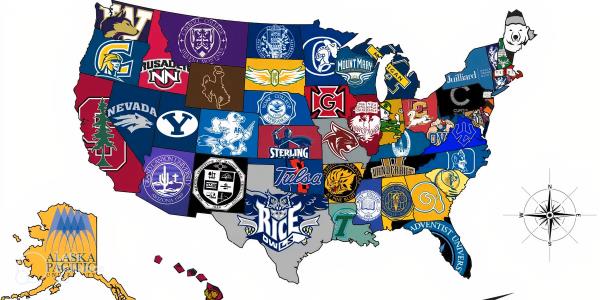 Why Summer College Tours Matter
Why Summer College Tours Matter
Choosing the right college is one of the most important decisions a student can make. College visits play a vital role in this process, as they provide students with an opportunity to get an up-close and personal look at the campuses and the college culture. A college visit offers a unique chance to experience the academic and social atmosphere of the institution, and to engage with the admissions personnel. Moreover, summer college tours provide an opportunity to explore different parts of the country and consider the location and environment of each school. This is important because the location of the college can have a significant impact on a student's experience. For example, a student from a small town may prefer a college that is located in a rural area, while a student from a city may prefer an urban campus.
This allows students to gain a comprehensive understanding of the college, beyond just what they can read online or in brochures. Summer is the perfect time for high school students to start planning their college visits. This guide will provide you with the ultimate check-list for your summer college tour planning, including tips for preparing, scheduling, and making the most out of your visits.
Benefits Of Summer College Tours
It is essential to make the most of your college visit by learning about the college's academic programs, campus facilities, extracurricular activities, and the student life. It can also help students make connections with faculty, staff, and students, which can be beneficial in their future academic and career pursuits.
We will explore the key factors to consider when planning a visit, such as timing, travel arrangements, and accommodations. We will also discuss how to make the most of your college visit by scheduling meetings with the college admissions team, attending campus tours, and sitting in on a class or two.
Preparing For Your Summer College Tour
Before embarking on your summer college tour, it's important to prepare. This includes researching colleges, creating a list of schools to visit, and scheduling appointments with admissions officers.When researching colleges, consider the school's academic programs, location, size, and culture. You should also review the admissions requirements and deadlines for each school. It's important to create a list of schools to visit and prioritize them based on your interests. Once you have your list of schools, you should schedule appointments with admissions officers in advance. This will ensure that you have a chance to meet with the admissions team and get answers to any specific questions you may have. You should also consider attending information sessions, campus tours, and other events that colleges may offer.
When creating your list, consider the following factors:
Academic programs: Does the school offer the programs you are interested in?
Location: Do you prefer an urban or rural campus? Do you want to stay close to home or explore a new part of the country?
Size: Do you prefer a small or large campus?
Culture: What is the student body like? What extracurricular activities are available?
Admissions requirements: Do you meet the admissions requirements for the school?

Choosing The Right College Tour Route - California, West Coast, East Coast, or Midwest
When planning your summer college tour, you should consider the route you will take. There are several popular college tour routes, each with different characteristics, but you should be able to get a good sense of the variety and what you may prefer to spend your four years at. The California college tour route often includes many of the UCs and The Claremont Colleges, as well as Stanford, and USC. There is the broader West Coast tour, which adds schools like University of Washington, Gonzaga, UNLV, and Oregon. These routes are ideal for students who are interested in the West Coast and want to explore schools with strong academic programs and beautiful campuses. The Midwest tour often includes schools like Wash U. in St. Louis, Northwestern, University of Chicago, Depaul, Indiana, and Michigan. Often, students will visit the Midwest because of a specific school, which allows them to see the culture as well. The East Coast tour often includes the Ivy League schools, NYU, Boston University, as well as many liberal art schools. This route is ideal for students who are interested in Ivy League schools and want to explore historic campuses and East Coast culture.
Tips For Scheduling Your Summer College Visits
When scheduling your summer college visits, there are several tips to keep in mind.
Start Early: As soon as you decide which colleges you want to visit, start planning your trip. Look into the dates that the colleges offer tours and information sessions, and plan your trip accordingly. Keep in mind that summer months tend to be busy for college visits, so book your accommodations and travel arrangements in advance to ensure availability.
Map Out Your Route: It's important to map out your route beforehand to make the most out of your time. Visit colleges in the same geographic area on the same day to save time and money on travel. Don't forget to factor in travel time between colleges, as well as the time it takes to park and find your way around campus.
Make a Checklist: Before you go on your college tour, make a checklist of the things you want to do and see on each campus. This can include attending information sessions, taking a campus tour, meeting with professors or current students, and visiting important campus landmarks. Keep in mind that each college has its own unique qualities, so make sure to tailor your checklist to each individual campus.
Be Prepared: Bring a notebook and pen to take notes, as well as comfortable walking shoes, a water bottle, and weather-appropriate clothing. Make sure to also bring a camera or phone to take pictures of important landmarks and buildings on campus.
Ask Questions: College visits are the perfect opportunity to ask questions and learn more about each individual college. Take advantage of this opportunity and don't be afraid to ask admissions personnel, professors, or current students questions about campus life, academic programs, and extracurricular activities.
Be open-minded and enjoy the experience!

